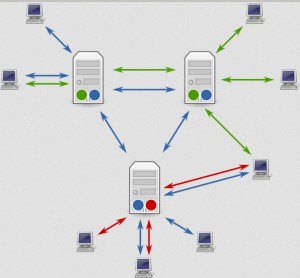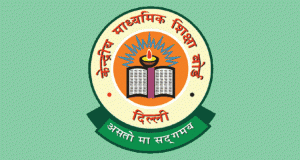The Internet provides the following 4 types of basic services to its users :
- Electronic mail
- File Transfer Protocol
- Telnet
- Usenet News
TELNET
Telnet service enables an Internet user to log in to another computer on the Internet from his/her local computer. It means a user can execute the telnet command on his/her local computer to start a login session on a remote computer. This action is also called “remote login”.
To start a remote log in session, a user types telnet command and address of the remote computer on his/her local computer. The remote computer then authenticates the user by asking user to enter a login name (user ID) and a password. If the user specifies a correct login name and password, the remote computer logs in the user and telnet command then enters input mode. From now onwards (until the telnet session is active), anything that the user types on the local computer is sent to the remote computer for processing.
Some common uses of telnet services :
- For using computing power of a remote computer. For example, when a user’s local computer is an ordinary personal computer while the remote computer is a powerful supercomputer, and the user needs to process a job on supercomputer.
- For using some software on a remote computer, which is not available on user’s local computer.
- For accessing information from a database or archive on a remote computer. An information archive of interest to a user, such as public database or library resources, may be available on the remote computer.
For logging in to one’s own computer from another computer. For example, if a user is attending a conference on another city, he/she can use a computer on the Internet in that city to telnet (i.e., to establish a connection with telnet protocol) to his/her own computer in his/her office and access information stored on it.
USENET NEWS
Usenet service enables a group of Internet users to exchange their views/ideas/information on some common topic of interest with all members belonging to the group. Several such groups exist on the Internet and are called newsgroups. For example, a newsgroup named comp.security.misc consists of users having interest in computer security issues.
A newsgroup is like a large notice board accessible to all members belonging to the group. A member, who wants to exchange his/her views/ideas/information with other members, creates a specially formatted message and submits it to the Usenet software running on his/her own computer. The software posts the message on the virtual notice board. Any member belonging to the same newsgroup can read (see) the posted message (just as anyone having access to a notice board can read a notice posted on it).
There are two types of newsgroups – moderated and non-moderated. In a moderated newsgroup, only selected members have right to post (write) a message directly on a virtual notice board, whereas in a non-moderated newsgroup, any member can post a message on it directly. In a moderated newsgroup, when an ordinary member creates a new message, he/she first sends it to one of the members having right to post a message on the notice board directly. The authorized member then checks the message to decide its appropriateness for posting. He/she does necessary editing (if any) to improve the message’s quality, and then posts it on the notice board. The message now becomes readable to (can be seen by) other members.
Main idea of a moderated newsgroup is to ensure quality of posted message. As no one moderates quality of message in a non-moderated newsgroup, anyone can post anything. However, members of such newsgroups should be careful in posting a message, because other members may react angrily by sending a flaming message in response to an ill-mannered message. To address the issue, the concept of netiquette (network etiquette) has evolved, which deals with rules of framing messages that will not hurt others.
– Priyanka Goyal




